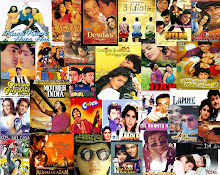by Shoma A. Chatterji
11/2004
I took the following statement from Chatterji's article "Rage Worship":
"the random use, abuse and misuse of violence by the average hero of the average mainstream film have reduced him to a marketable commodity devoid of human values. He mirrors the terrorist in Punjab and Kashmir, the fascist in Gujarat, the regional facist of Assam, the legitimised army killer and rapist in Manipur much more than he is in any way close to our mythological heroes Ram, Ravana, or Yudisthira..."
to heart as I watch the increase in the acceptance of violence as a means of governing world-wide.
There is no more perfect slave culture than a population that had been oppressed by fear, violence, and poverty.
Chatterji's statement applies to Western films and culture, too, and to my mind, as a westerner, much more so, because Western films have reduced violence to an entertainment value without any social context. Western films portray acceptance of violence as a way of life. Just as Bollywood and India have fought corruption in their industry and in their culture, the United States seems to be run by the mafia. Our government and our industries are run by thugs and thieves who enjoy robbing and killing their own people. They are destroying their own economic engine--the middle class--for short-term personal gain. Our government has a history of genocide starting with the Native Americans, African Americans, and Mexicans. We took their land, we enslaved their people, we throw their governments into turmoil by supporting civil war, and it seems that our government wants to continue this policy in the Midddle East.
If the United States was instrumental in saving Europe from Nazi domination, who will save the world now from the United States?
my 1000th Indian film: Inaam Dus Hazaar
6 years ago
